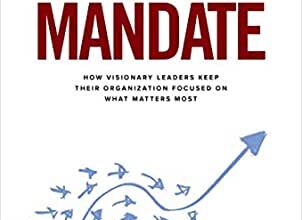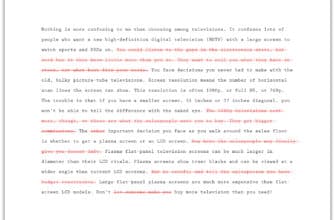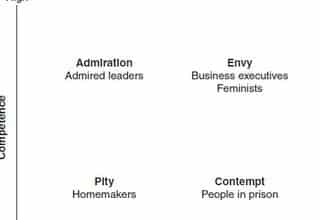The following is from guest writer, Ed Russo.
There is a new type of homeowner looking for (literally) less overhead. Those appearing on the HGTV show Tiny House Hunters are seeking a simpler life with less stuff, cheaper rent, and more mobility. Just as businesses are less invested in bricks and mortar so are these new property purchasers. Imagine being forced to part with the majority of your personal belongings in order to fit into a 300 square feet house. I must admit that I’m intrigued by their minimalist philosophy.
In many cases, the homes on Tiny House Hunters have wheels and can be taken to a variety of locations. Mobility is freedom. Growing up in Boston, I remember seeing a sign while sitting in traffic on Storrow Drive that read “If you lived here you’d be home now.” The developer of that community knew the appeal of going and being home instead of suffering in the daily commute.
Size doesn’t always matter – its creativity that counts.—Tiny House Nation, FYI channel
What can we learn from this trend of having less and doing more? Leaders in the workforce have been living this mantra for a while. There are certainly some benefits to right-sizing. Minimalist Leadership is a practice that strives to eliminate unnecessary tasks that get in the way of actual work. How can the minimalist leader obtain maximum results? What essential tools can you use to lead your team?
Tiny Blueprints: Create a culture of effectiveness and efficiency. It seems cliché but working smarter is more effective than working harder. One tool I recently learned from a seasoned project manager is the “To Don’t” list. We all have used some version of “To Do” lists to organize our work. Taking a few minutes to identify non-priorities that may become time-suckers and get in the way of actual work is the first step towards efficiency. Encourage your team to set 3-5 priorities for the day and an equal number of distractions to avoid. Could be a coaching opportunity if “surf the internet” or “update Facebook status from weekend” keep ending up on the To Do list.
Leaders need to find the balance between task and relationship. Task-oriented cultures are always trying to do more with less, in which people wear ‘busy-ness’ as a badge of honor. At the end of a task-oriented work day we feel drained and stressed, because there is always more on the to-do list than we can possibly accomplish.—Peggy Brown
Mobile Command Units: Share the goal/mission concisely and consistently. Police and military teams have mastered minimalist leadership by utilizing mobile command units (think Stripes – EM-50 Urban Assault Vehicle). Command and control can be maintained wherever an emergency occurs by bringing the office to the field. They go to the work. These mobile command units are fully equipped with all of the essentials. Every emergency management plan includes steps to maintain continuity of business operations. Due to space restrictions, it is critical that only essential tools are taken and unnecessary items left behind. Every available space is utilized including exterior functionality. Not only does it allow the leaders access to tools it ensures one voice – consistent messaging. FEMA uses a Joint Information Center (JIC) that allows public information officers from multiple agencies to unify in a time of crisis. The JIC provides all media outlets with the same information and controls the message.
Choose your Tiny Housemates wisely: Recruit talent & attitude. In order to be a successful minimalist leader you need to have quality people around you who posses the desired skills for your company to be great. Human Resources departments have grown to be sophisticated professional organizations that identify talented prospects from hundreds of applicants. By the time new hires get to you, they have been interviewed, screened, reference and background checked. Let these hires perform and use the expertise they have brought to your organization.
Provide an open Tiny Space to flourish: Get out of the way. Sometimes we cannot get out of our own way. Do not create fake roadblocks for your team. Provide the environment, strategic plan, support and then get out of the way. Companies who are compensated by billable hours to clients have very few meetings. Clients don’t like to pay people to talk about work. They are more interested and invested in actual work. Do the work – stop meeting. If you have to meet, create action items and get out. Regurgitation of status updates that can be found in written reports is ineffective and unnecessary.
Give the ball to Michael (Jordan) and everyone else get the F out of the way.—Doug Collins, Chicago Bulls Coach
The minimalist approach is not an excuse to disengage. It is an opportunity to connect deliberately with your team and your customers in a meaningful way. Limits also inspire creativity and ingenuity. So the challenge this week is to get minimalist. Identify the “To Don’ts” in your life that are keeping you from getting actual work done.
________
Ed Russo is the Program Manager for the National Center for Missing and Exploited Children. Mr. Russo works with educators, law enforcement, community leaders, and government officials to implement child safety resources into schools and communities across the country. Through presentations and trainings, Mr. Russo provides participants with information about how safety resources can help prevent the victimization of children. Prior to joining the Center he was a Human Resources Manager in a Florida County Clerk’s Office and has over 18 years of teaching experience.
Mr. Russo can be contacted through Twitter and LinkedIn.







